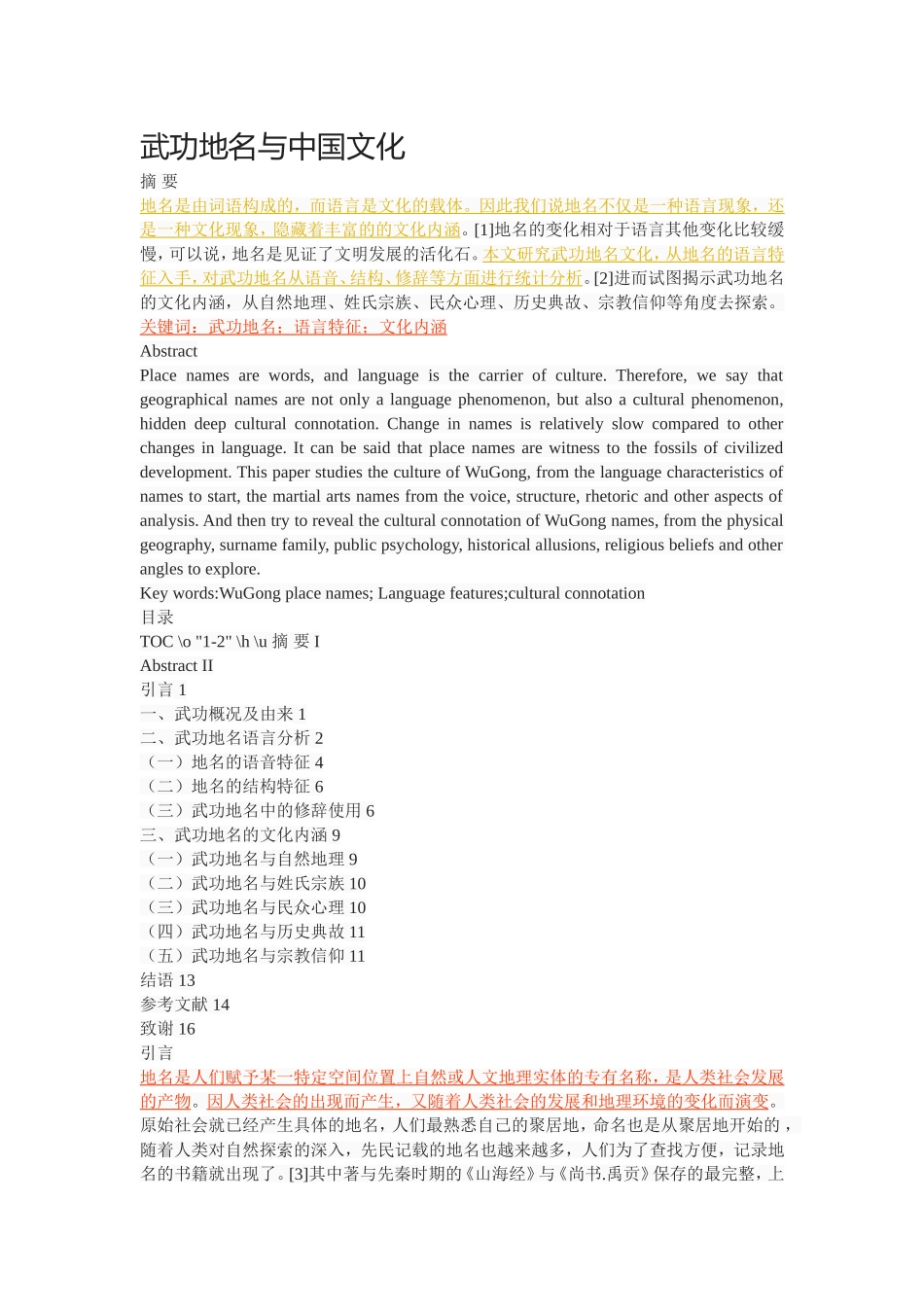武功地名与中国文化摘 要地名是由词语构成的,而语言是文化的载体。因此我们说地名不仅是一种语言现象,还是一种文化现象,隐藏着丰富的的文化内涵。[1]地名的变化相对于语言其他变化比较缓慢,可以说,地名是见证了文明发展的活化石。本文研究武功地名文化,从地名的语言特征入手,对武功地名从语音、结构、修辞等方面进行统计分析。[2]进而试图揭示武功地名的文化内涵,从自然地理、姓氏宗族、民众心理、历史典故、宗教信仰等角度去探索。关键词:武功地名;语言特征;文化内涵AbstractPlace names are words, and language is the carrier of culture. Therefore, we say that geographical names are not only a language phenomenon, but also a cultural phenomenon, hidden deep cultural connotation. Change in names is relatively slow compared to other changes in language. It can be said that place names are witness to the fossils of civilized development. This paper studies the culture of WuGong, from the language characteristics of names to start, the martial arts names from the voice, structure, rhetoric and other aspects of analysis. And then try to reveal the cultural connotation of WuGong names, from the physical geography, surname family, public psychology, historical allusions, religious beliefs and other angles to explore.Key words:WuGong place names; Language features;cultural connotation目录TOC \o "1-2" \h \u 摘 要 IAbstract II引言 1一、武功概况及由来 1二、武功地名语言分析 2(一)地名的语音特征 4(二)地名的结构特征 6(三)武功地名中的修辞使用 6三、武功地名的文化内涵 9(一)武功地名与自然地理 9(二)武功地名与姓氏宗族 10(三)武功地名与民众心理 10(四)武功地名与历史典故 11(五)武功地名与宗教信仰 11结语 13参考文献 14致谢 16引言地名是人们赋予某一特定空间位置上自然或人文地理实体的专有名称,是人类社会发展的产物。因人类社会的出现而产生,又随着人类社会的发展和地理环境的变化而演变。原始社会就已经产生具体的地名,人们最熟悉自己的聚居地,命名也是从聚居地开始的 ,随...


